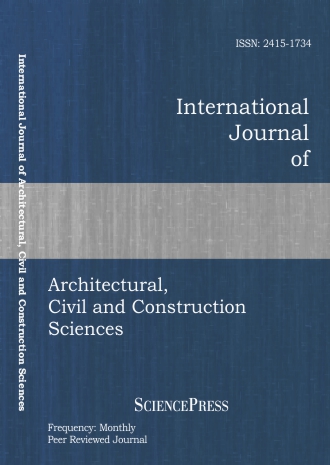
Scholarly
Volume:10, Issue: 10, 2016 Page No: 1283 - 1290
International Journal of Architectural, Civil and Construction Sciences
ISSN: 2415-1734
Sustainable Development Variables to Assess Transport Infrastructure in Remote Destinations
The assessment variables of the accessibility and the sustainability of access infrastructure for remote regions may vary significant by location and a wide range of factors may affect the decision process. In this paper, the environmental disturbance implications of transportation system to key demand and supply variables impact the economic system in remote destination are descripted. According to a systemic approach, the key sustainability variables deals with decision making process that have to be included in strategic plan for the critical transport infrastructure development and their relationship to regional socioeconomic system are presented. The application deals with the development of railway in remote destinations, where the traditional CBA not include the external cost generated by the environmental impacts that may have a range of diverse impacts on transport infrastructure and services. The analysis output provides key messages to decision and policy makers towards sustainable development of transport infrastructure, especially for remote destinations where accessibility is a key factor of regional economic development and social stability. The key conclusion could be essential useful for relevant applications in remote regions in the same latitude.